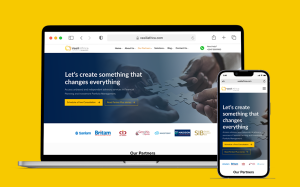Originally posted on Twitter by Samantha Leal
Study the top 1% of marketers in different categories. They all share one thing in common: Mastery of behavioral psychology.
Here are 9 psychology principles to master marketing:
- Curiosity Gap
If you want people to read your content, you need to make them curious.
Lesson: Begin with the desired emotion you want to evoke in your reader before you write a headline.
Seven (7) powerful emotions to keep in mind:
- LOL
- WTF
- WOW
- NSFW, crazy
- Ohhh, now I get it
- Finally, someone said it
- Yay!
- The IKEA Effect
We tend to value something more if we feel a sense of ownership over it. Whether we’ve made an effort to build or assemble it, we put an additional value on it. Your customers attribute a higher value to things they feel like they own.
Lesson: Help increase your user’s ownership of your product.
Some ideas:
- Make them tinker with the product from the get-go
- Adjust features to their needs
- Invest in sharing their information
- Encouraging feedback
- Involve them (chats, office hours, podcast, blog)
- Reciprocity Principle
We feel obligated to return favours after people do favours for us. Ever wondered why restaurants give you mints after your meal? Well, on average one mint results in a 3% higher tip, and if they add 2 mints, it goes up by 14%. If a brand offers you free valuable content or resources frequently, you’re more likely to engage, recommend, or become their customer.
Lesson: Give something of value for free today, and you’ll reap the rewards later.
- Anchoring Bias
We rely too heavily on the first piece of information (“anchor”) we are given about a topic. It distorts our perception. Numbers presented to us are powerful. Our brain latches on to them, even when we know we are irrelevant – like thinking about your social security number.
Lesson: Apply anchoring by making the 1st price or number shown so high that other prices seem like a discount.
- Social Proof
We tend to copy those around us when we don’t know what the “right” behaviour or choice is. We are looking for clues of trust, quality, and reputation in others.
Lesson: Use the experience of others to help people see the benefits of your product.
- Loss aversion
Studies show that the pain of a loss is 2x as strong as the reward felt from a gain. Discover your customer’s challenges and worries, and remove their fears upfront.
Lesson:
- To deal with loss aversion, try risk-free trials and money-back guarantees to deal with loss aversion.
- To introduce loss aversion, try countdown timers to remind you that the offer will expire soon.
- Decoy Effect
Adding a 3rd less attractive option can influence our perception of the two previous choices.
Lesson: Put the decoy effect into action in your pricing strategy. Add an option that seems faulty or that doesn’t quite add up. It’ll make the other 2 more appealing.
- Mere Exposure Effect
We tend to like things or people that we see often. Repeated exposure increases familiarity.
Lesson: Repurpose your content so that you show up often and stay top of mind.
- Social Currency
We share stuff that makes us look cool, smart, and in the know.
Lesson: Identify what’s remarkable about your brand and make people feel like insiders.
The most successful marketers understand and use behavioural psychology to their advantage.
Study the top 1% of marketers in different categories.
— Samantha Leal (@samanthalcc) August 23, 2022
They all share one thing in common:
Mastery of behavioral psychology.
Here are 9 psychology principles to master marketing:
*****
Shupav Group is supporting business owners to build and scale successful brands in Africa. We do this through pioneering Digital Marketing, PR & Communications, and Sales Enablement solutions. www.shupav.com











